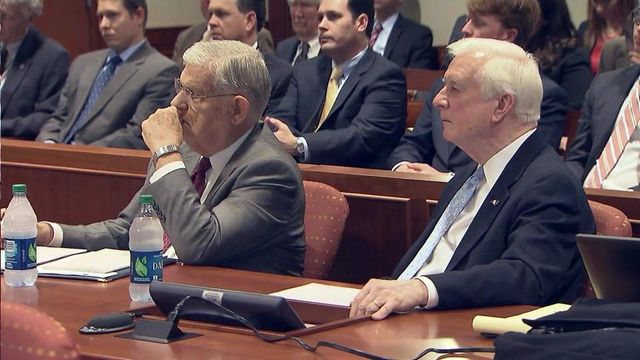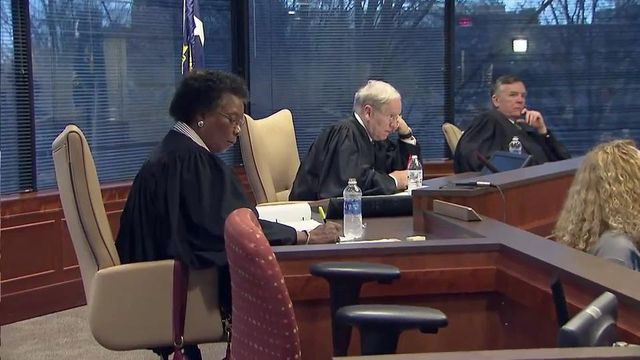Three branches of NC government meet in lawsuit over appointments
A civics lesson played out in a Raleigh courtroom Thursday morning as North Carolina's judicial branch tries to sort out a dispute between the state's executive and legislative branches.
Posted — UpdatedThe dispute erupted over a new commission put in place to oversee the cleanup of coal ash ponds across the state. Lawmakers reserved the right to appoint some of the members of that commission, but McCrory said those appointments should be his. He also balked at the idea that the commission would be independent of his Department of Environment and Natural Resources.
The lawsuit goes beyond the Coal Ash Management Commission, however, with McCrory challenging the right of lawmakers to make appointments to boards that oversee everything from the university system to local historic sites.
"Separation of powers is the cornerstone of our government. If (lawmakers) prevail in this case, the cornerstone of our government has moved to no more than a suggestion," said John Wester, an attorney representing McCrory and former Govs. Jim Hunt and Jim Martin.
Appointments matter, Wester said, because they can advance policy backed by those making the appointments.
"If the power to appoint is inconsequential, why has the General Assembly repeatedly passed legislation in recent years vesting the General Assembly with appointment power that previously lay with the governor?" he asked.
John Culver, an attorney for legislative leaders, argued that making appointments isn't an inherent power of any branch of government but noted that the commissions primarily are engaged in rule-making, which is a quasi-legislative function.
"Separation of powers in and of itself tells us nothing about how these powers may interact, when they overlap or when one usurps another," Culver told the panel of three Superior Court judges assigned to handle the lawsuit.
"Putting 'quasi' in front of the various functions," Wester said, "does not make them into anything different from what they are. As a matter of common sense and daily function, they are carrying out – executing – the laws."
Assistant Attorney General Ann Matthews noted that, when the state constitution was amended in the 1990s to give veto power to governors, the amendment explicitly stated that legislative appointments to executive boards couldn't be vetoed.
"If it was unconstitutional for the legislature to make such appointments, why would this amendment to our constitution exempt from veto by the governor these appointments? It simply doesn't make sense," Matthews said.
Judge Howard Manning Jr. of Wake County asked why lawmakers wrote the coal ash bill like "a nail in the lion's paw" of McCrory.
"They told Gov. McCrory, 'You're going to do something that you have the authority to do, and we're making you do it,'" Manning said. "(The administration's) argument is that crosses the line. They're now co-mingling and messing around in his yard."
"What legislatures do is enact statutes that require action," Culver responded.
Manning, Judge W. Russell Duke Jr. of Pitt County and Judge Yvonne Mims Evans of Mecklenburg County didn't hear any evidence in the case, as both sides asked the panel to rule strictly on their oral arguments and written briefs.
A decision isn't likely for weeks, and the panel's ruling will likely be appealed to the state Supreme Court.
Related Topics
• Credits
Copyright 2024 by Capitol Broadcasting Company. All rights reserved. This material may not be published, broadcast, rewritten or redistributed.






